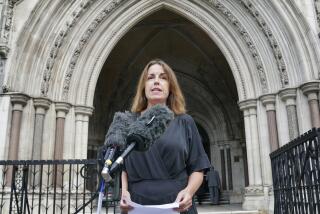Bold Look at ‘Bloody Sunday’
- Share via
In another bold move for peace in Northern Ireland, British Prime Minister Tony Blair says he will launch a new inquiry into the 1972 “Bloody Sunday” killings in Londonderry.
Blair’s politically daring decision to set the historical record straight, one way or the other, should help build support for the stalled peace negotiations, the victim of mistrust and a rash of recent sectarian violence. He previously boosted the peace process by encouraging talks with support unprecedented from London.
Today marks the 26th anniversary of the violence in which 14 Catholic civil rights marchers were shot to death by British soldiers. The original inquiry, considered a whitewash by many observers, was chaired by the lord chief justice of England. It exonerated the British soldiers on the grounds that the marchers or their sympathizers had shot first and that some of the victims may have been armed.
Some years after the incident, the Irish government reviewed the inquiry and concluded that the original investigation was “incomplete in terms of its description of the events of the day. . . . It was a startlingly inaccurate and partisan version of events, dramatically at odds with the experiences and observations of civilian eyewitnesses.”
If it turns out that the original inquiry was undertaken with reckless disregard for the truth, the least that the families of the slain marchers deserve is an official statement from the British government acknowledging the wrong that was done.
If, on the contrary, the second inquiry also concludes that the soldiers did fire at the marchers at least partly in justifiable self-defense, solid proof of that finding will be required. Once the past is clear, that whiff of truth could re-energize Catholic nationalist and Protestant Unionist negotiators in their efforts to bring about a permanent peace.
More to Read
Sign up for Essential California
The most important California stories and recommendations in your inbox every morning.
You may occasionally receive promotional content from the Los Angeles Times.













